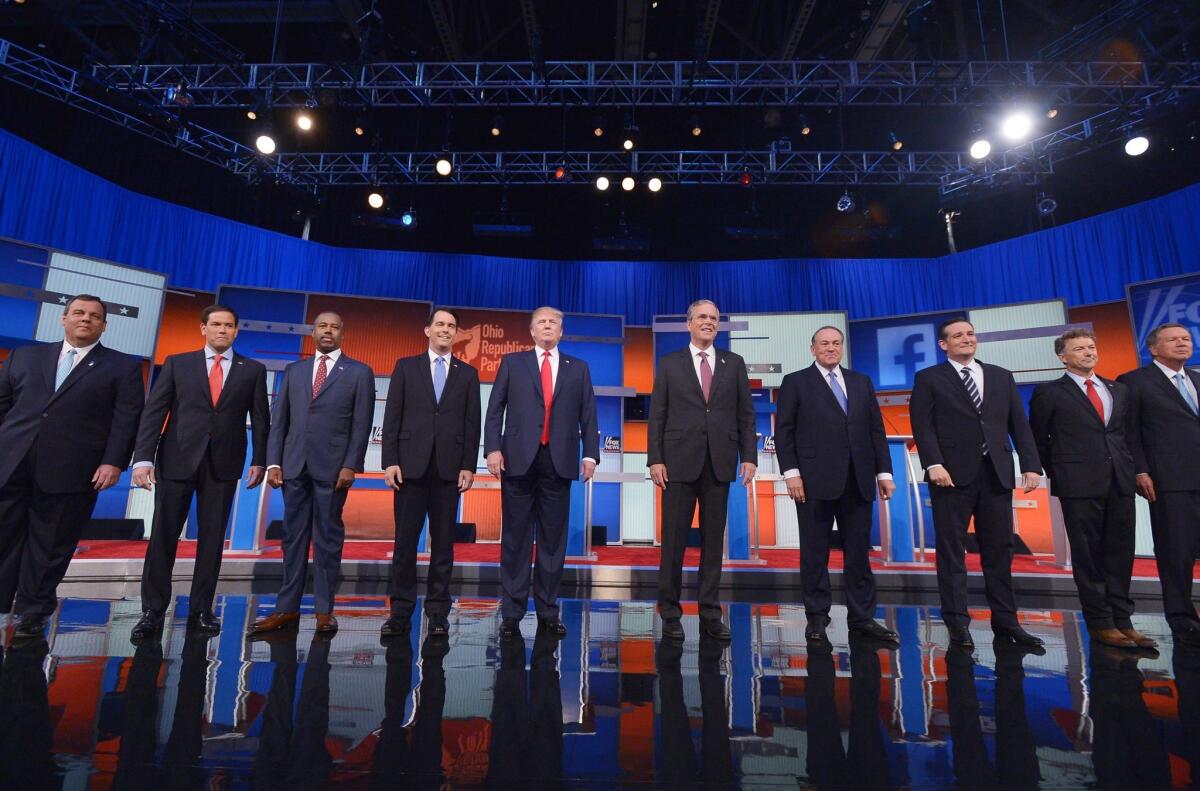A winner in the Republican debate: Facebook

More than 40,000 people responded to the call for questions for the Republican presidential candidates ahead of Thursday night’s Fox News debate.
- Share via
In the first Republican debate of the 2016 presidential election, Facebook came out on top.
The social media giant partnered with Fox News to host Thursday night’s debate, and users weren’t shy about sharing their thoughts.
According to Facebook data, 7.5 million users throughout the U.S. made 20 million interactions in the form of posts, shares, likes and comments about the debate.
That’s more chatter than during the State of the Union address earlier this year (5.6 million people made 14 million interactions) and the 24 hours around Donald Trump’s campaign announcement in June (3.4 million people made 6.4 million interactions).
More than 40,000 people responded via Facebook to Fox News’ call for candidate questions, and analysts said the debate reinforced the social network’s growth and importance in the 2016 election.
“I think you’re seeing that Facebook is reasserting itself as the place where dialogue happens, and that also includes politics and entertainment,” said Jason Cieslak, Pacific Rim president at global branding firm Siegel+Gale. “It speaks to the maturation of the company that they chose to do something that was extraordinarily mainstream.”
Facebook already has a tremendous amount of brand recognition, and Fox News’ call for questions allowed it to bring even more interest to the debate, said Rob Gregory, chief revenue officer for digital media company WhoSay, which connects celebrities with brands.
But the company’s ubiquity, on everything from pizza boxes to the local dry cleaners’ window, may have made the publicity irrelevant.
“I’m just not sure that it really helped to better define the brand or send a brand message about Facebook in any particular way,” Gregory said. “They’re so big now, you would almost expect them to be there.”
Facebook’s role in the debate also indicates that candidates think the social network is equally important as traditional broadcast networks, but in a different way, Gregory said.
Facebook allows them to reach out to a large number of everyday voters. But, he said, television is still the bully pulpit.
“The power of American television is still greater than anything else,” Gregory said.
For more business news, follow @smasunaga.
MORE DEBATE AND CAMPAIGN COVERAGE >> TRAIL GUIDE
More to Read
Inside the business of entertainment
The Wide Shot brings you news, analysis and insights on everything from streaming wars to production — and what it all means for the future.
You may occasionally receive promotional content from the Los Angeles Times.











